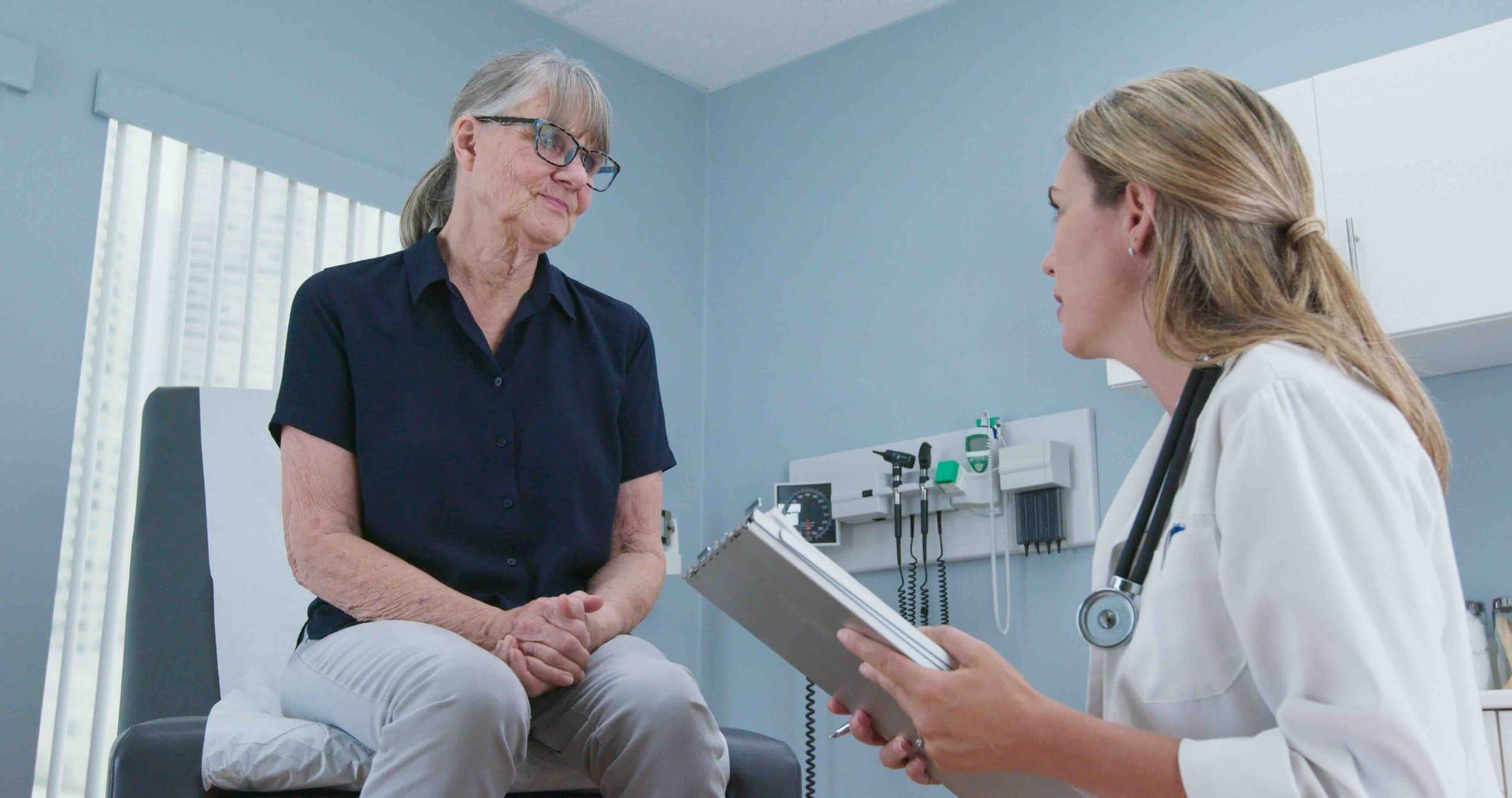The Importance of Regular Check-ups: A Guide to General Care
Taking care of your health now helps you avoid serious problems later. That’s where regular check-ups and screenings come in. This guide will explain their importance and the health issues they can catch early.
Regular check-ups have saved countless lives—they can help with everything from keeping your weight in check to catching serious problems early when they’re easiest to treat. Consulting with a regular check-up system enables you to understand how your body is doing and gives you and your doctor a heads-up about potential issues. That way, you know what steps to take for the best possible health.
No matter how old you are, getting a scheduled check-up is an intelligent move. It’s best to catch health issues early and ensure you feel your best. Regular check-ups also monitor your overall health and suggest ways to stay healthy and prevent long-term illnesses. Healthcare providers at the Family Medical Center offer quality healthcare services, so you know you’re in the best hands.
What Are Regular Check-ups?
Also called a physical exam, check-ups are systemized, regular health consultations with your doctor. They’ll do a few tests to see how things are working and if any areas of your health need extra attention. Usually, your doctor at the Family Medical Center will run the following routine:
- The Basics: You’ll chat with your doctor about your medical history, current lifestyle and health routine, medications, and diet.
- The Exam: The doctor will check your eyes, ears, nose, throat, heart, lungs, and more. They’ll also check for unusual lumps and take your height, weight, and blood pressure.
- Lab Tests: These are common during a check-up. They might do blood tests to check cholesterol and blood sugar and a urine test to ensure your kidneys are working well.
- Additional Tests: Depending on your health history and needs, your doctor might suggest more in-depth tests. These could include X-rays, CT scans, an ECG, or a stress test.
What Benefits Do Regular Check-ups Offer?
Regular check-ups are like armor against health problems. They help prevent many diseases and catch others early when they’re easiest to treat. Plus, you’ll stay informed about your health, and your doctor will have all the necessary information to give you the best care.
It’s human nature to put our well-being on the back burner, especially when life gets busy. But the truth is, waiting until a health problem surfaces can make things so much more complicated. Regular check-ups are a way to show your body some love and get ahead of potential issues.
Regular check-ups are like an extra layer of protection against getting sick.
Regular health check-ups are your body’s early warning system. Your doctor checks you from head to toe, both physically and mentally, to ensure everything works well. This helps them catch problems early on when they’re easiest to treat. The goal is to avoid any significant issues down the road and keep you feeling your best. You get a detailed picture of your health with physical exams, blood tests, and other routine screenings. This helps catch potential problems before they become severe and lets you track any changes. Think of it like this: cholesterol tests monitor heart disease risk, and mammograms or colonoscopies screen for cancer. Your doctor will tailor which check-ups you need and how often based on your age, gender, and family history.
Regular check-ups save you money on healthcare over time.
Regular check-ups are your best defense against getting sick. They help find problems early when they’re easier to treat, which keeps you healthier and lowers your medical costs. Getting sick can be expensive, especially if a problem isn’t caught early. Regular check-ups help keep you healthy, so you need fewer sick days or trips to the hospital. They let your doctor find issues early when they’re most accessible and cheapest to treat. Consider check-ups an investment—they save you money on medical bills in the long run.
Regular check-ups help you understand your health better.
It’s easy to forget how important our health is until we lose it. Regular check-ups are a powerful reminder to take care of yourself. They don’t just check for problems—they also help you understand your health better. That knowledge empowers you to make smarter choices about exercise and diet. Plus, visiting a doctor for a check-up can be a wake-up call to prioritize your well-being.
Regular check-ups help you build a trusting relationship with your doctor.
Regular check-ups help you build a strong relationship with your doctor.
This means you’ll feel comfortable sharing concerns and asking questions. Your doctor can teach you about staying healthy, offer advice on good habits, and work with you to prevent health problems. This partnership helps you make the best choices for your long-term health and well-being.
Regular check-ups help your doctor spot signs of stress-related diseases early.
Taking care of your health is necessary, which means more than just not feeling sick. Stress from work, traffic, and unpredictable life events can sneak up on you. Regular check-ups help your doctor spot signs of stress and its impact on your body and mind. This lets you address problems early and get the support you need. By getting regular check-ins, you’ll stay informed about your overall health and make intelligent choices for your well-being.
Regular check-ups can assess your mental health.
Regular health check-ups go beyond just your physical health—they also address your mental well-being. Mental health is just as crucial as physical health, and check-ups are an excellent opportunity to discuss any concerns you might have with a healthcare professional. Addressing mental health concerns early can make a world of difference in your overall quality of life. Regular check-ups allow you to manage your mental well-being, like your physical health, proactively. You can live a happier, healthier life by caring for your body and mind.
Regular check-ups let your doctor create a personalized preventive care plan.
Everyone is different, and regular check-ups let you get personalized prevention care based on your medical history and risk factors. If healthcare workers know your health needs, they can ensure that their preventative steps are appropriate for you. This could include suggestions for vaccinations, tests for certain diseases based on your sex and age, and living advice that is specific to your wellness goals. If you want to protect your health, personalized preventive care can help you stay a few steps ahead. A good doctor will tell their patients to take more responsibility for their health and do what they must to stay healthy. This will suggest keeping healthy habits and a general healthy way of life.

How to Select the Right Check-up Plans?
Your ideal health check-up isn’t a one-size-fits-all package. It’s tailored to your age, gender, family medical history, and the lifestyle choices you make. A check-up often includes:
- Blood Pressure Checks: Monitoring for potential heart issues.
- Cholesterol and Blood Sugar Levels: Keeping an eye out for diabetes and heart disease risks.
- Cancer Screenings: Early detection can mean lifesaving treatment.
- Physical Examination: A head-to-toe assessment of your overall health.
When Is the Right Time for a Check-up?
How often you need a check-up depends on your unique health picture. Most adults benefit from an annual check-up, but more frequent visits might be necessary if you have specific health concerns or chronic conditions.
Why Do Regular Check-ups Matter?
Regular health check-ups are a robust investment in your long-term well-being. They provide an opportunity to:
- Take Charge: Be proactive about your health, not reactive.
- Catch Problems Early: When issues are minor, they’re often easier to treat.
- Partner With Your Doctor: Work together for your best possible health.
Does My Insurance Cover Health Check-Ups?
Many health insurance plans do offer coverage for preventive health check-ups. The best way to know is to carefully review your insurance policy or contact your insurance provider directly. They can clarify your specific coverage and any potential costs.
How Many Times Should I Conduct Regular Check-ups?
How often you need a check-up depends entirely on you. Your health needs and any risk factors you might have are the best guides. Generally, most adults benefit from annual check-ups. But if you have specific health concerns or chronic conditions, your doctor might recommend more frequent visits.
Key Takeaways
Let’s be honest: health sometimes gets put on hold in our busy lives. But here’s the thing: regular check-ups are the secret weapon for staying on top of your well-being. Think of them as a chance to proactively invest in your health. Sure, a visit to the doctor might not always be the most exciting thing on your to-do list, but it’s way better than scrambling to deal with a health issue down the road.
Check-ups can identify potential issues before they snowball into something more serious. By staying on top of your health, you can focus on what truly matters—feeling your best and enjoying life to the fullest.
Finding a doctor who feels like a good fit is critical. You want someone with the right expertise for your needs but also someone conveniently located and who listens to your concerns. After all, a doctor who understands your medical history and offers personalized care can make all the difference in your health journey.
Contact us today if you would like to discuss about becoming a patient at Family Medical Center.
Your Family’s Health Is Our Priority
Your wellness matters to us. Take the next step in your care today.
1020 4th Ave
Lake Odessa, MI 48849
oFFICE HOURS
- Mon - Tue
- -
- Wed - Thu
- -
- Fri - Sun
- Closed
AFTER HOURS EMERGENCY CONTACT
1020 4th Ave
Lake Odessa, MI 48849
oFFICE HOURS
- Mon - Tue
- -
- Wed - Thu
- -
- Fri - Sun
- Closed
AFTER HOURS EMERGENCY CONTACT
All Rights Reserved
FAMILY MEDICAL CENTER
website designed by SPECK DESIGNS
All Rights Reserved | FAMILY MEDICAL CENTER
website designed by SPECK DESIGNS





